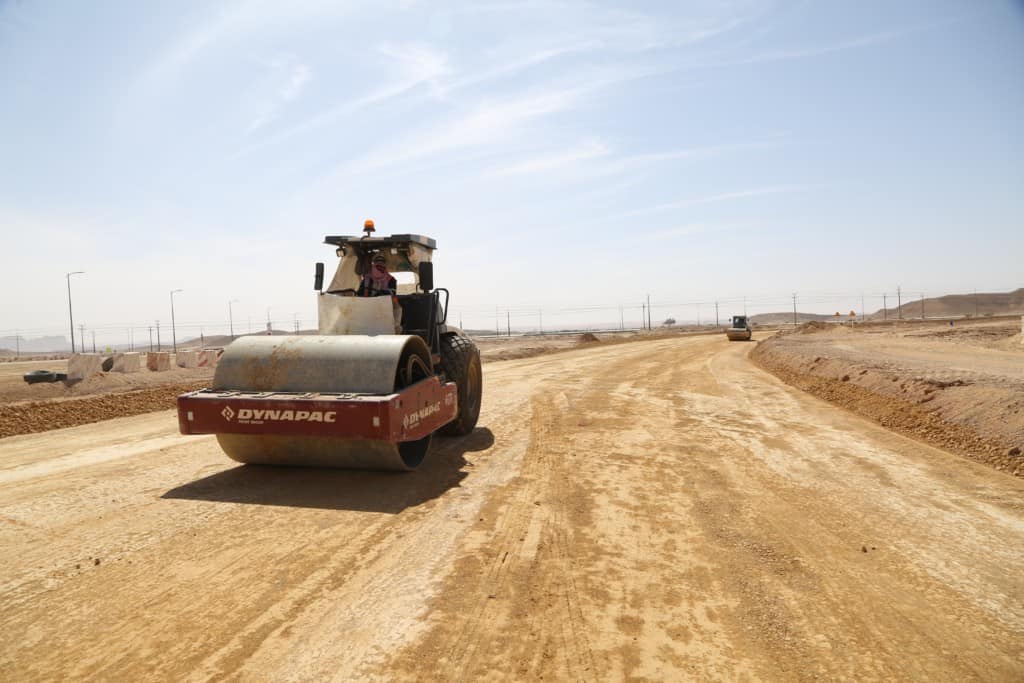Previously published on Blooloop
About half a year ago, I enjoyed a great setting in Ferrari Land in PortAventura during a Themed Entertainment Association (TEA) event. Finally, after such a long time without network events, I attended a nice dinner with my industry friends. I was lucky to share my table with some respectable and long-term attraction producers, discussing topics such as our favourite attractions (Spiderman was still mentioned a few times, more than 10 years after opening!) and our experiences around the world.
The conversation also touched on our experiences in the Middle East and the opportunities in that part of the world. What was interesting was that some of these very experienced attraction producers said that they are now less interested in working on projects again in that part of the world. And the reason for that? The cost controllers.
Cost controllers in themed entertainment
Everyone who has worked on a big project in the Middle East has experience in working with a cost controller. Simply put, a cost controller is responsible for controlling the project costs; this includes planning, developing, controlling, and forecasting the project’s budget. In a typical project, the cost controller sits between the end client and the contractors who are actually building the project.

This all sounds logical; an independent experienced party is controlling the performance of the contractor on behalf of the client. In the construction industry, applying cost controllers is common. But what is the reason that very experienced and respected attraction producers are so averse to these cost controllers?
Since this enjoyable dinner, I have had more conversations about this subject with other industry peers. It kept my mind spinning: why do clients involve cost controllers? And why are the best and world-known attraction designers and producers unhappy with the situation?
Tackling uncertainty
The most obvious reason to employ cost controllers in themed entertainment projects, from the client’s perspective, seems to be uncertainty. Often clients have a background in real estate, financing, or a combination of the two. They are familiar with running projects based on parameters created on benchmarks over years; so many Euros for a square meter retail space on a certain quality level, a benchmark investment for a 4-star hotel room and a sqm price for a fine dining restaurant.
These parameters provide them with a comfortable feeling about project costs. Based on this, they can ask a cost controller to keep an eye on these costs on their behalf.

However, in the entertainment world, we don’t have rational parameters for theme park experiences or attractions. We don’t have a qualification system of 3-star, 4-star or 5-star like hotels have. The so often used square meter prices do not necessarily make sense in our business. For instance, we also include media and/or show production into our investment budgets. This will influence the square meter price immediately.
The lack of available benchmarks is one of the key reasons why many investors get nervous when we as a themed entertainment industry present our budgets. We are not able to explain well enough why we need that extra budget in order to succeed. To defend the budget, we use arguments like “touching emotions”, “creating ambassadors”, “WOW factors” and other non-rational arguments.
This doesn’t fit into their Excel model thinking. By this, only the best design and production teams, based primarily on their track record, have a chance to successfully sell and produce a project to an investor for the right budget.
Needing progress insight
The second reason could be the fact that in the construction world, materials arrive on-site from day one. The client sees progress throughout. For all good reasons, we in the themed entertainment industry prefer to build as much as possible off-site. But this makes it much harder for a client to understand why the next check should already be paid, when they have not seen actual goods arriving on site.
This makes the client nervous. So, they are more likely to fall back on the experience of their trusted cost estimators, who have already guided them through many real estate projects.
Compared to construction budgets that are rational, detailed and use clear benchmarks, based on understandable decisions about why certain cost decisions were made for materials or processes, the show budget is based on many non-rational elements. This is why it becomes the perfect target for cost controllers to find savings in themed entertainment projects.

Without an understanding of the importance of making emotional connections with guests, the relatively unclear show budget becomes an easy place for a cost controller to question everything the show producer does. With the customer’s lack of experience in building attractions, the cost controller also easily finds support from the client for these questions.
As a producer, you now find yourself in situations where cost controllers are making themselves look nice to the client, with arguments such as: “This projector can be replaced with the one I found online” and “I know someone who can make media for a fraction of the price”. Before you know it, a question hangs over the entire show budget, and cuts are happening across the board. You can feel the quality of the project slipping away.
This is a situation that occurs around the world. It is particularly prevalent in the Middle East, where real estate development drives entertainment projects. I completely understand the frustration that my fellow experienced industry friends shared at that TEA dinner.
How to handle the issue of cost controllers in themed entertainment

So, can we do something about this? Our clients often come from the real estate and financing world and live with Excel sheets. But there are a few things we can do:
- Try to convince a client to hire an experienced client representative and/or cost controller from our industry. Someone reputable, who understands the themed entertainment business. Yes, this may consume some percentage of your original show budget. But if these people do their job well, they will save you as a producer a lot of time convincing the client that the right show budget is critical to success. They will also prevent major cuts to the show budget. This ultimately allows you, the producer, to create the attraction you are proud of!
- Be clearer about why you need the money. Use comparable situations. Have your client go with you on a trip to show the differences in these comparable attractions. Make an effort to identify and demonstrate to clients the differences in return on investment between different attraction qualities.
- Involve clients more in the design and production process. Show them what you are doing and why and show the progress you are making, especially off site. Yes, I know, you’d prefer to keep them at bay as much as possible. Clients can be disruptive during the process and your budgeted hours are limited. But keeping the client away is almost asking for inexperienced and powerful cost controllers to get involved in your themed entertainment project. By creating an understanding of your process and the reason behind the decisions you make, you can help prevent this from happening.
- And my last point: as an industry, we need to collect and share more data on the differences in quality approaches to attraction development in relation to ROI. This data can become a benchmark to advocate for our industry against cost controllers coming from the rational construction industry. Perhaps this is a great task for IAAPA or the TEA?
Emotions are key
Ultimately, the heart and soul of the themed entertainment industry is the creation of emotions. And Excel sheets can never 100% capture this. The famous Joe Rohde captured this perfectly in this quote from one of the episodes of the fantastic The Imagineering Story on Disney+:
“By Imagineering, you have to accept that it will neither be some kind of jungle of creative monkeys, nor it is going to run like some kind of dystopian military facility. It’s not gonna be those. It’s gonna be this thing that’s held in balance between the two.”
There will always be friction between the typical building cost controllers and the themed entertainment industry. But as professionals in this sector, we have a task to make our industry more transparent. It is our task to create more understanding of how certain resources help to create, via the emotions of the guests, a better return on investment.
For more information how TDAC can help you with balancing costs versus experience, please read hier for our services
